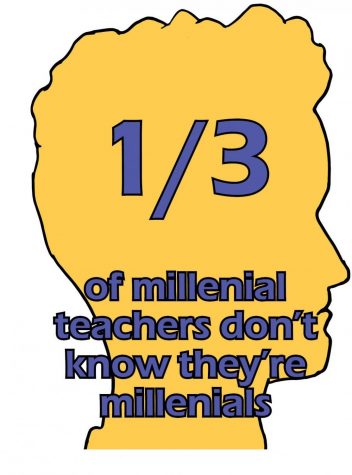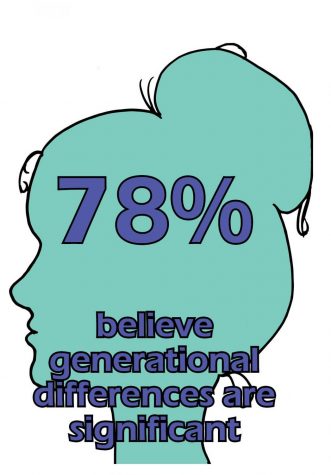Reaching Mutual Understanding
January 21, 2020
With so many generational differences, how can we possibly distinguish what’s real from what’s perceived?
English teacher Bhumi Dalia suggests that we begin with an understanding of the nature of our prejudices. “Stereotypes originate from some truths,” she said, “but to generalize them to everyone is dangerous.”
 For example, it is a fundamental truth that the prevailing attitudes of any time period are often heavily influenced by its respective contemporary events. When misinterpreted, however, this fact could easily turn into an accusation that the older generations live in the past, holding onto views characterized by events that are no longer relevant.
For example, it is a fundamental truth that the prevailing attitudes of any time period are often heavily influenced by its respective contemporary events. When misinterpreted, however, this fact could easily turn into an accusation that the older generations live in the past, holding onto views characterized by events that are no longer relevant.
Mangus warns against jumping to such a groundless conclusion. “Everyone has a chance to experience right now. Just because a person grew up in the twentieth century doesn’t mean they don’t know anything about the twenty-first century,” she said.
Unfortunately, dispelling generational misperceptions is no easy task because the stereotypes have found a niche in mainstream media, ranging from “OK, Boomer” hashtags and memes to full-fledged articles expressing one generation’s criticism of another.
Social studies teacher Wes Benjamin believes that generational stereotyping is exasperated by the increased influence of the media but that it is not at all a new phenomenon. He told me: “When I was your age, I could probably say that people who were older didn’t understand me. 25 years from now, you’re going to have people that are going to say things to you similar to what boomers are getting now.”
It seems as though the younger and older generations will never be satisfied with one another, but Darnell sees that as a sign of striving for progress.
“There’s a constant effort to reflect on our differences as the torches pass from one group of power in positions of power to a younger group of people coming into positions of power,” Darnell said. “Young people want to identify what is wrong before leaving their nest. There are things that they want to do differently.”
As humans, we are very quick to judge, but Munson believes that it is possible to acknowledge our differences without having to view one generation as superior or inferior to another.
“We’ve got to be open-minded so that we can meet others where they are and see them for who they are,” she said.
 According to Dalia, our differences lie not in our core values, but in how we prioritize and express them. “One person’s prioritization of one value becomes the point of contention, and that leads to miscommunication and perpetuation of stereotypes,” she said.
According to Dalia, our differences lie not in our core values, but in how we prioritize and express them. “One person’s prioritization of one value becomes the point of contention, and that leads to miscommunication and perpetuation of stereotypes,” she said.
If we have the option of referencing our shared values as we work out our differences, then why should there be any reason for the so-called generation war being waged between younger and older people?
“It’s because nobody in the conversation is willing to change their perceptions of others in a different generation,” Dalia said.
On that note, I’m afraid we are in great danger of recreating the generation version of Pride and Prejudice if we don’t make an honest attempt to correct our misunderstandings of one another.
Let us, then, take Dalia’s words for it when she says progress only comes as a result of thoughtful and meaningful dialogue.
